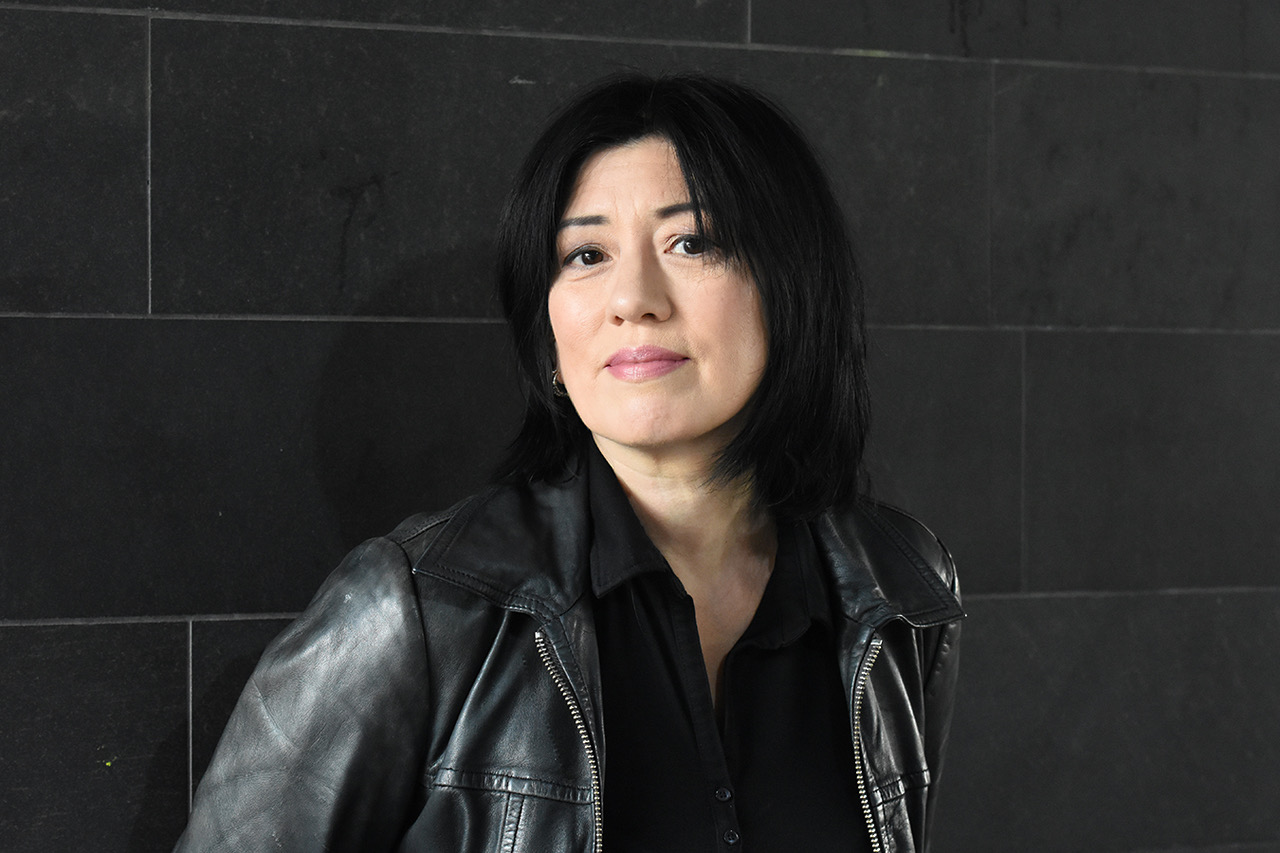Half-Hungarian, Half-Japanese, Thoroughly Entertaining: Miki Berenyi

Miki Berenyi
I’m a sucker for books by rock and rollers and have become obsessed with reading about famous people with a Hungarian background. “Fingers Crossed,” a memoir by Miki Berenyi, writer, guitarist, and lead singer of the band Lush, ticks both boxes.
The band, active between the late 1980s and 1996, when they dissolved, had a solid following in the United Kingdom, United States, and Europe. They released three acclaimed albums: “Spooky,” “Split” and “Lovelife.” The first reached number seven in the U.K. album charts and did well in the States. Three singles released from “Lovelife” were hits.
Lush was popular enough to be invited to tour America as part of the then-alternative Lollapalooza festival in 1992.
When I picked up my copy of “Fingers Crossed,” I knew little about Lush other than that Berenyi had flame-red hair and is half-Hungarian. Her father, journalist Ivan Paul Berenyi was born in Hungary in 1933 and escaped to the United Kingdom after the Soviets crushed the 1956 Hungarian Revolution.
Her mother, Yasuko, was an actress and model best known for her appearance, pregnant with Berenyi, in the 1967 Bond movie You Only Live Twice.
In the press release for the book, Berenyi is quoted as saying, “The madcap ups and dysfunctional downs of my childhood and adolescence (London, Windsor, Hungary, Japan, Los Angeles) set me up for the chaos of being in a band and the eventual overkill of a changing music industry. […] There are shocking events, but it’s not a misery memoir. Bad stuff happens to everyone and it’s how you get through the crap that I find important and interesting.”
I was also intrigued by the fact that “Fingers Crossed” has received excellent reviews. Music bible Mojo described it as “Compelling, funny, vivid,” and The Times as “Remarkable, revelatory.”

Childhood Memories
Berenyi visited Hungary several times throughout her childhood. Her apparently monstrous, abusive grandmother Nóra, who helped raise her, kept one grand family apartment on the Buda side of Budapest and a villa at Balatonboglár on the southern shore of Lake Balaton.
Her writing about the Hungary she visited when it was communist is vivid, funny and insightful.
“My memories of Hungary are bathed in a nostalgic gauze of warm sunlight, but even as a child, I picked up that the political situation cast a noticeable pall of dissatisfaction and paranoia over its citizens,” she writes.
“From what I observed, Soviet communism for most Hungarians engendered a willful rejection of all its ideals: our local friends refused to speak more than a few words of Russian, despite years of lessons at school and their enforced reading and study of the entirety of ‘Das Kapital’ failed to engender any appreciation of Marxist philosophy and instead provided the tools with which to condemn communist ideology all the more eloquently.”
This has very much been my experience of discussing communism and Marx with my partner and her friends who grew up in those different times. But how Hungarian does Berenyi feel herself?
“I’ve never felt particularly Hungarian in that I think I was so busy trying to fit in culturally in Britain that I didn’t really think to sort of amplify my Hungarianness or even particularly explore it. It was just something that happened to me,” she tells me.
“I would go to Hungary, and I would have a lovely time, but I was clearly an outsider there, as I was in Japan. I was mixed race. And often, people wouldn’t realize that I spoke Hungarian because I looked a lot more Japanese when I was younger as well. Although I only learned Hungarian because my grandmother Nóra refused to learn English.”
Perfect Accent
According to my Hungarian partner, who overheard snatches of my conversation with Berenyi, her pronunciation is very good.
“I tell you what,” Berenyi says, “if I lived in Hungary for a month, Ithink it would all come back. When I was writing the book, Peter Pallai, aHungarian journalist who worked forthe BBC in London and who was a friend of my Dad’s, helped me fill in some of the detail. When I was talking to him, he said, ‘Your Hungarian accent is still perfect.’ I think Hungarians are often taken a bit aback by that because it’s just so unexpected.”
While she doesn’t feel Hungarian, Berenyi acknowledges that she may well have inherited a Hungarian sensibility.
“There’s the Hungarian love of telling stories. I remember from my childhood that someone would launch into a long story, and everyone would be laughing and chiming in,” she recalls.
“I’ve had a lot of people saying that I write about quite traumatic stuff with a certain detachment and humor. I do think that’s probably my Dad’s voice somewhere. Even when he was talking about shocking things and violence, such as 1956 and his own abuse at the hands of his mother, he would try and turn it into a funny story. In that way, I’m my father’s daughter.”
In “Fingers Crossed,” Berenyi writes, “exposed to Dad’s constant and casual use of swearwords and Nóra’s elaborate and vindictive cursing, I have acquired an impressive range of filthy expressions myself, in both English andHungarian.”
Having enjoyed a conversation with her, I can attest to her prowess at swearing in English. I have never interviewed someone who swears so much. I loved it. Now I just need to provoke my Hungarian partner into swearing at me in her native language so I can learn more.
Find out more about Miki Berenyi at www.mikiberenyi.com.
This article was first published in the Budapest Business Journal print issue of November 7, 2022.
SUPPORT THE BUDAPEST BUSINESS JOURNAL
Producing journalism that is worthy of the name is a costly business. For 27 years, the publishers, editors and reporters of the Budapest Business Journal have striven to bring you business news that works, information that you can trust, that is factual, accurate and presented without fear or favor.
Newspaper organizations across the globe have struggled to find a business model that allows them to continue to excel, without compromising their ability to perform. Most recently, some have experimented with the idea of involving their most important stakeholders, their readers.
We would like to offer that same opportunity to our readers. We would like to invite you to help us deliver the quality business journalism you require. Hit our Support the BBJ button and you can choose the how much and how often you send us your contributions.







